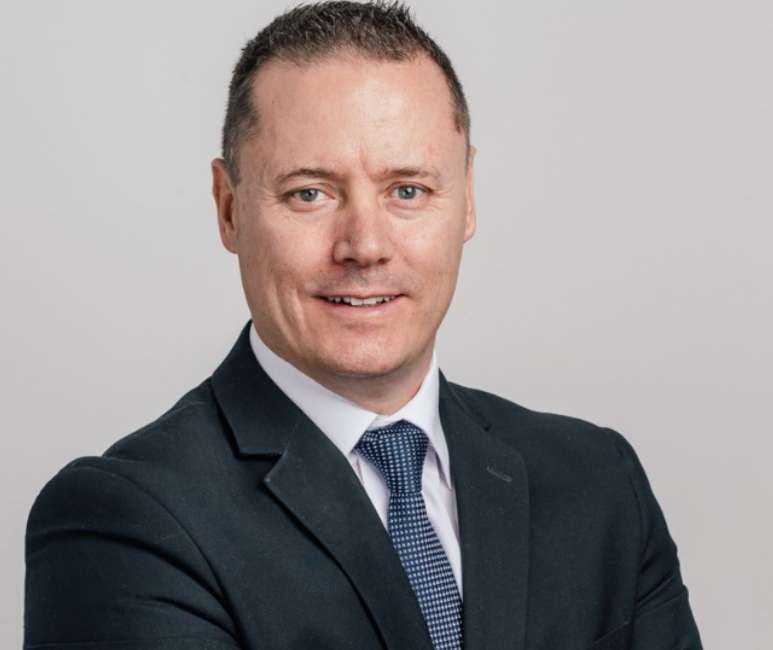The Australian SME intermediary market is within a period of transition.
The traditionally manual processes that once dominated the space has given way to digitalisation that strives toward innovation.
From automation to advanced analytics, while these technologies have streamlined the process of broking, do brokers risk losing the human-side of giving advice by replacing it with faceless efficiency?
In this instalment of the Future of Broking series, BizCover for Brokers talks to 2022’s IBA Broker of the year in the Director category and Founder of Grace Insurance Frans du Plessis about what the future holds for broking.
The impact of technology
From online banking to buying and selling items over the Internet, technology has given consumers greater efficiency, empowering them to have more control over various aspects of their lives.
When it comes to business insurance, this digital shift has enabled customers to buy via the direct market, often through online aggregators. While this gives autonomy to SME clients, the model lacks the benefits of a broker’s advice.
Vero’s SME Index 2022 report found that clients are better off with brokers, finding 63% of SME clients that used a broker were satisfied with their claims compared to only 42% of direct buyers.
It also found that business growth and increased business complexity were the biggest reasons for SMEs to start using a broker.
Both facts indicate that brokers have a crucial role to play in the current market – and Frans thinks the role of a broker will become even more critical in the near future.
“I do not believe technology can fully replace a good broker,” he said. “Rather, the future of broking will be driven by improving and enhancing technology to help our brokers advise their clients.
“You can already see it with some insurers that use technology to limit their losses and exposure.”
Operating from the north of Perth in Western Australia, Frans’ team at Grace Insurance utilises technology to “its fullest extent” in order to streamline their processes.
From using the CRM system Trello to manage workflows to diarised systems and auto-renewals that can be sent to a client to ensure the information sent is up-to-date, there are plenty of tools being utilised at Grace Insurance.
Frans has also been a big proponent of the BizCover for Brokers platform, which helps him bind SME policies across a wide range of occupations in a fraction of the time.
“BizCover for Brokers is fantastic for us. You can quote, bind, and renew policies on it and what’s nice about it is it sends you a reminder to renew your policy.”
The advice-giving side of broking
While technology is key to facilitating the future of broking, Frans hopes brokers don’t become too dependent on it to the point where it takes away from the skill of advising clients.
“A successful broker is somebody that understands the risks of the client, addresses that risk, and moves close to the client,” he said. “What do I mean by that? If you were my client, I’d engage with your business on LinkedIn, Facebook, or any other social media platform.”
Frans’ concept of “moving close” to a client, which he emphasises to each of his brokers, stems from a valuable lesson he learned early on.
After signing a new client, he decided to follow their business on social media. Scrolling through his feed one day, he noticed the client had bought a new truck for their business.
“I thought, mate, you’re posting it on social media, but you didn’t tell your broker. But since I moved close and engage the client, I was able to pick the risk up, give him a call and advise him.”
Frans says that what makes a good broker is taking that personal interest and becoming a partner in that person’s business. Sometimes, the best way to do that is to be as efficient as possible.
“Technology can never replace a broker, but it can set parameters that make your work and client risk profiles so much better. I believe a good broker enhances and adapts to technology and uses it to benefit their broking business and clients,” says Frans.
“I hope and trust it can resolve the big issue most brokers face, which is the shortage of staff. If you have technology that assists you in the basics of admin processes, embrace it. It can help.”

The future is now
Where once brokers were constrained by time-consuming manual processes, new brokers entering the industry now have various tools at their disposal.
But while these advancements are great news for efficiency, some innate skills will still be needed for future brokers.
“I’ve seen the difference between a person who is a go-getter and is eager to get out there and a person who wants to sit behind a keyboard. We do not operate only behind computers at Grace Insurance. I push my staff to engage clients face-to-face,” Frans said.
“If you’re just starting out in the business – learn. Learn from the people around you. Learn from their knowledge and have energy. Don’t just sit back and expect everything to be given to you on a plate. Work for it,” says Frans.
While the current market may seem challenging for some, Frans says this is the best time for young brokers to learn their trade.
“I believe the future of brokers is one that is exciting and ever-changing. Brokers that are looking at growing, now is the time,” says Frans. “There is just so much opportunity in the market. Depending on where you are in your broking journey, there is opportunity for everybody.”
